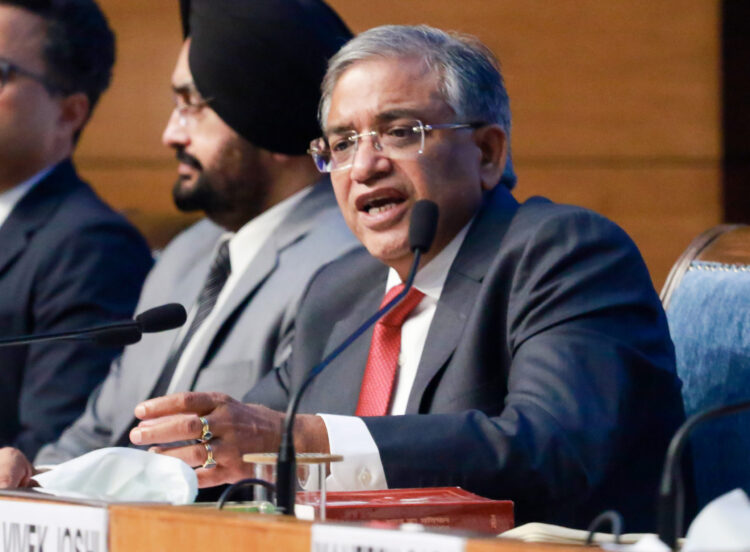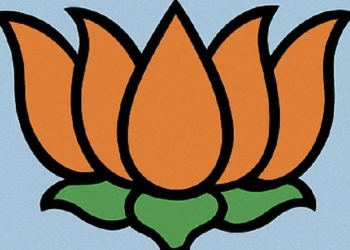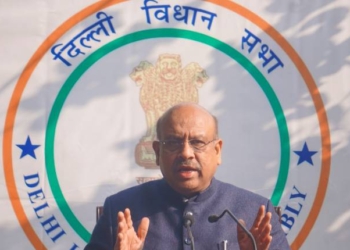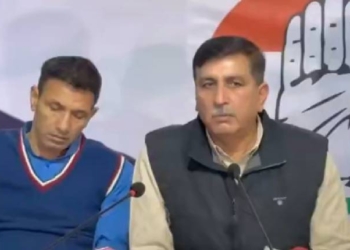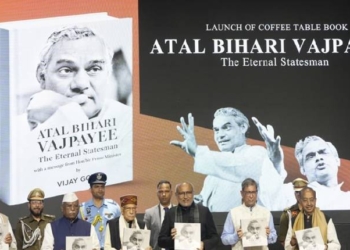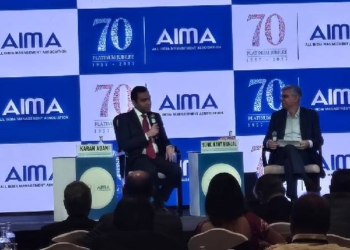New Delhi: In a moment of rare institutional candour, Chief Election Commissioner (CEC) Gyanesh Kumar delivered a rebuke to Congress MP Rahul Gandhi on Sunday, admonishing him for his incendiary allegations of electoral theft and demanding either a formal affidavit substantiating his claims or a public apology to the nation.
The Commissioner’s remarks, delivered with gravitas befitting the constitutional office he holds, cast a long shadow over the Opposition’s nascent campaign narrative.
The controversy erupted following Rahul Gandhi’s launch of the ‘Voter Adhikar Yatra’—a 1,300-kilometre march from Sasaram in poll-bound Bihar—intended to galvanise public sentiment against what he termed “vote chori” in the electoral rolls.
Citing alleged discrepancies in a Karnataka Lok Sabha constituency, Rahul Gandhi claimed over one lakh votes had been compromised through duplicate entries, fictitious addresses, and invalid photographs. The CEC responded with a pointed rejoinder.
“India is not merely a democracy—it is the world’s largest and most intricate democratic enterprise,” he declared.
“To impugn the integrity of its voters and the sanctity of its electoral rolls without evidence is not merely irresponsible; it is an affront to the Constitution itself.”
He continued, “If one chooses to level such grave accusations in full view of the media, one must either furnish proof in the form of a sworn affidavit or seek apology from the people of India. There exists no third path.”
The Commissioner proceeded to elucidate the nature of voter duplication, distinguishing between identical EPIC numbers assigned to different individuals across states—a technical anomaly resolved earlier this year—and instances where a single individual appears on multiple rolls under varied EPICs.
“We identified and rectified over three lakh such cases. The system is not infallible, but it is vigilant,” he affirmed.
On the matter of voter privacy, Gyanesh Kumar invoked the Supreme Court’s 2019 ruling prohibiting machine-readable electoral rolls.
“Searchable lists are permissible; machine-readable formats are not. The sanctity of the voter’s identity must remain inviolate,” he said, condemning the unauthorised dissemination of voter photographs in the media.
Turning to Bihar’s Special Intensive Revision (SIR) exercise, the CEC described it as a monumental undertaking—unprecedented in two decades—designed to cleanse and fortify the electoral rolls.
“Over 1.6 lakh Booth Level Agents have participated in this exercise. More than 28,000 claims and objections have been submitted. This is democracy in motion,” he said.
He was unequivocal in his defence of the Commission’s impartiality.
“Every political party is born of registration with the Election Commission. We do not discriminate. We serve the Constitution, not partisan interests,” he asserted.
He also addressed concerns regarding foreign nationals on the voter rolls, stating that any individual unable to prove Indian citizenship during the SIR process would be duly removed. In a final flourish, the Commissioner invoked the moral weight of the electorate.
“When more than seven crore voters of Bihar stand with the Election Commission, no shadow may be cast upon their integrity. To question them is to question the very soul of our republic.”
As the political storm around voter integrity intensifies, the Election Commission has made it clear: it will not be a silent spectator when the credibility of India’s democratic process is questioned.
(IANS)




